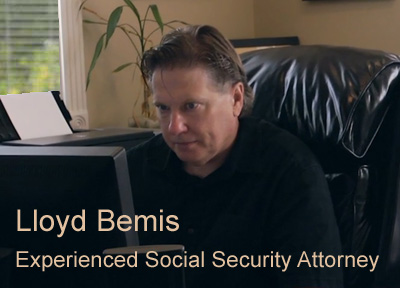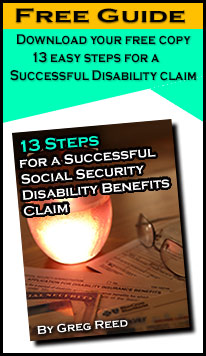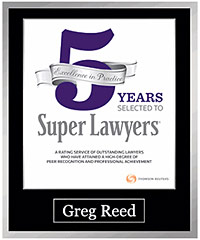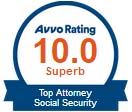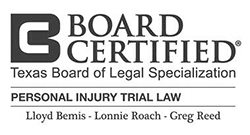Homelessness and applying for Social Security Disability Benefits
How do you apply for SS disability benefits if you are both disabled and homeless?
Author Attorney Lloyd Bemis:
People who have a disability and are also homeless have the same rights and privileges as individuals who are not experiencing homelessness. The Social Security Administration participates actively in the United States Interagency Council on Homelessness (USICH) in efforts to reduce and end homelessness.
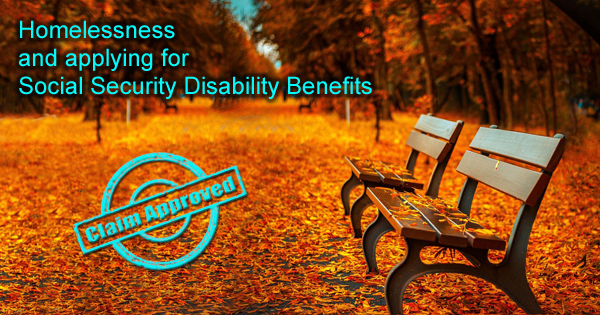
People who have a disability and are also homeless have the same rights as those who are not experiencing homelessness. There are several ways for them to apply.
Social Security Disability Income (SSDI) benefits are paid to people who cannot work due to a medical condition that is expected to last at least 12 months or end in death.
Additionally, the Supplemental Security Income program (SSI) pays benefits to disabled adults and children who have limited income and resources. The application process can be daunting for a homeless person with few resources so it is important for a homeless person to inform Social Security that they are homeless so that Social Security can assist with the application.
There are several methods an indigent individual can use to apply for assistance.
A. Apply Online
Public libraries often have computers connected to the internet that applicants can use for free to access https://secure.ssa.gov/iClaim/dib
A homeless person can apply for Social Security Disability Income online if they:
- Are age 18 or older;
- Are not currently receiving benefits on their own Social Security record;
- Are unable to work because of a medical condition that is expected to last at least 12 months or result in death; and
- Have not been denied disability benefits in the last 60 days.
They may also be eligible for Supplemental Security Income if they meet the following requirements.
- Are between the ages of 18 and 65;
- Have never been married;
- Aren’t blind;
- Are a U.S. citizen residing in one of the fifty states, District of Columbia, or the Northern Mariana Islands;
- Haven’t applied for or received SSI benefits in the past; and
- Are applying for Social Security Disability Insurance at the same time as your SSI claim.
A Social Security representative will contact the claimant when the application has been completed if any additional information is needed.
B. Apply in person at a local SSA office
An application can also be filed with a local Social Security office by calling 1-800-772-1213
(TTY 1-800-325-0778) between 7 a.m. and 7 p.m. and scheduling an appointment.
Service providers can help individuals experiencing homelessness complete part of their application online, provide transportation to interviews, and help gather medical information. SOAR (SSI/SSDI Outreach, Access and Recovery) is a program created to assist adults who are homeless or at risk of homelessness in applying for SSI and SSDI. SOAR provides training to service providers on how to complete SSI and SSDI applications and is available in all 50 states. For more information about SOAR see https://soarworks.prainc.com.
If you have been denied disability don’t give up! Contact a Disability lawyer at 512-454-4000 for a free consultation and get the benefits you deserve.
To make the application process smoother, SSA recommends that an applicant bring the following information with them:
- Applicant’s date and place of birth and Social Security number,
- The name, Social Security number and date of birth or age of applicant’s current spouse and any former spouse. Applicant should also know the dates and places of marriage and dates of divorce or death.
- Names and dates of birth of claimant’s minor children.
- Applicant’s bank or other financial institution’s Routing Transit Number and account number, if benefits are to be electronically deposited.
- Name, address and phone number of a contact person who is familiar with applicant’s medical conditions and can assist with the application.
- Detailed information about applicant’s medical illnesses, injuries or conditions:
- Names, addresses, phone numbers, patient ID numbers and dates of treatment for all doctors, hospitals and clinics;
- Names of medicines applicant is taking and who prescribed them; and
- Names and dates of medical tests applicant has had and who requested them.
- The amount of income applicant earned last year, if any, and this year.
- The name and address of any employer(s) for this year and last year.
- A copy of applicant’s Social Security Statement.
- The beginning and ending dates of any active U.S. military service before 1968.
- A list of the jobs (up to 5) that applicant had in the 15 years before applicant became unable to work and the dates applicant worked at those jobs.
- Information about any workers’ compensation, black lung, and/or similar benefits applicant filed, or intend to file for.
Once benefits are granted, there are several ways a homeless person can receive disability payments:
- Benefits can be deposited directly into a personal bank account;
- Benefits can be mailed to a third party;
- Benefits can be directed to a Direct Express debit bank card; or
- A relative or third party can be assigned as a representative payee.
A representative payee is a person, agency, organization or institution chosen by SSA to manage a recipient’s benefits when the agency determines the person is unable to do so.
Before a representative payee is appointed, SSA will evaluate medical information and other evidence concerning the recipient’s ability to manage their benefits. Among those who can serve as representatives are relatives, friends and spouses, health care providers, and social service agencies. It is the responsibility of a representative payee to use the recipient’s benefits in the recipient’s best interests. After paying for basic needs such as food, clothing and medical care, the representative payee must save any money left for the recipient, preferably in an interest-bearing bank account.
The SSDI and SSI application process can be extremely challenging for a disabled person experiencing homelessness, but it is not impossible to achieve success. For more information, see https://www.ssa.gov/homelessness.
Disability benefits are an important source of income for those who are unable to work. If you not able to work due to injury or illness, you may be eligible for Social Security Disability or Long Term Disability benefits. If you have applied for benefits and been denied, contact the attorneys at Bemis, Roach and Reed for a free consultation. Call 512-454-4000 and get help NOW.
Hot Weather and the Disabled – Avoid Danger
Assistance Programs for the Disabled
Texas Social Security Disability Insurance Qualifications

Your Free Initial Consultation
At Bemis, Roach and Reed, if we can't help you, we will try to find the right attorneys for you.
We offer each of our prospective clients a free no obligation one hour phone or office consultation to see if we can help you and if you are comfortable with us. We know how difficult a time like this can be and how hard the decisions are. If we can be of assistance to you and help you find a solution to your issue we will even if that means referring you to another attorney.
Or simply call
512-454-4000
to schedule your
Free Consultation
Let's get you Started:
If you could provide us with some basic information about your claim we will get right back with you with a free case evaluation and schedule your Free Consultation Today.

